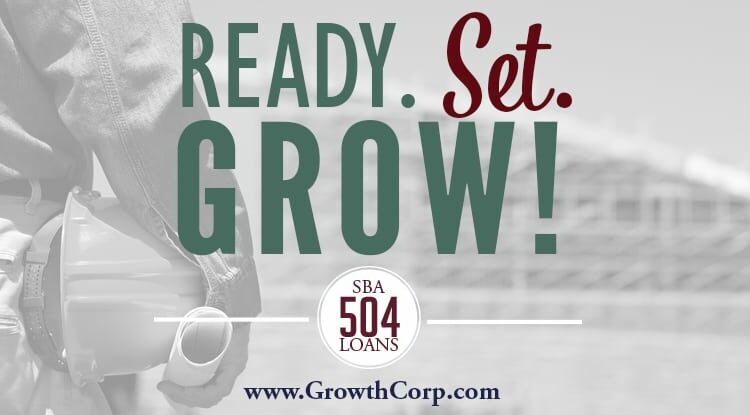As an entrepreneur, securing funding is crucial for the success of your business. However, when it comes to taking out a loan, you may be torn between getting a business loan or a personal loan. While both types of loans can provide the necessary funds for your business, they have different features and considerations that you need to take into account.
Toc
Business Loans
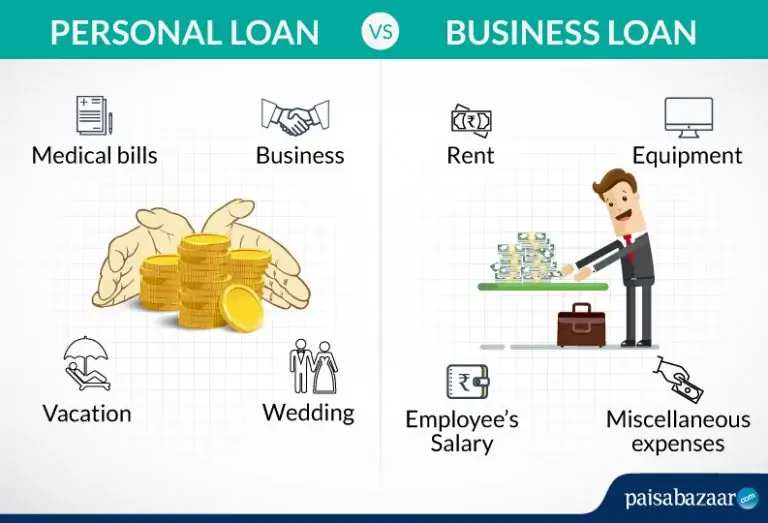
Business loans are specifically designed for businesses and are intended for funding business-related expenses such as equipment purchases, inventory, and expansion projects. These loans typically offer larger amounts with longer repayment terms compared to personal loans. They also usually come with lower interest rates and fees since they are considered less risky by lenders.
What is Business Loan?
A business loan is a form of financing that allows entrepreneurs to access capital to fund their business operations and growth. This type of loan can be secured or unsecured, depending on whether the borrower provides collateral. Secured loans often offer lower interest rates due to the reduced risk for the lender, as they can claim the collateral if the borrower defaults. On the other hand, unsecured loans do not require collateral, but they may come with higher interest rates and stricter credit requirements. Business loans can be used for a variety of purposes, including purchasing equipment, hiring staff, managing cash flow, or investing in marketing. It’s essential for entrepreneurs to evaluate their business needs and financial situation when considering this type of financing, as taking on debt can significantly impact the long-term health of the business.
Types of Business Loans
There are various types of business loans available, each with its own purpose and eligibility requirements. Some common types include:
- Term Loans: This type of loan provides a lump sum of money that is repaid over a set period, usually with fixed interest rates.
- SBA Loans: These are government-backed loans offered by the Small Business Administration to help small businesses access financing.
- Equipment Loans: As the name suggests, these loans are specifically intended for purchasing equipment necessary for your business operations. The equipment serves as collateral for the loan.
- Business Line of Credit: This type of loan provides access to a certain amount of funds that can be used as needed. Interest is only charged on the amount borrowed, making it a flexible financing option.
Personal Loans
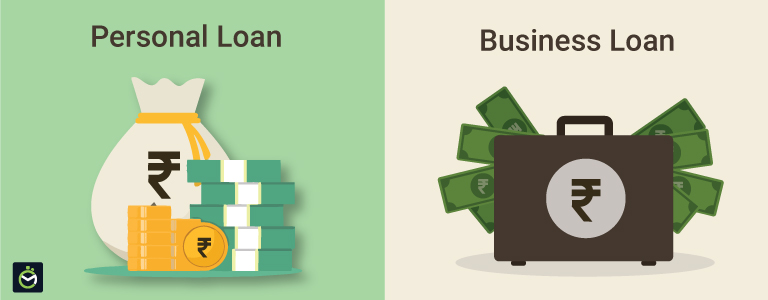
Personal loans, also known as consumer loans, are typically used for personal expenses such as home renovations, debt consolidation, or other personal needs. However, they can also be used for business purposes. Personal loans usually have shorter repayment terms and lower borrowing limits compared to business loans. They also tend to have higher interest rates due to the higher risk for lenders since they are not secured by collateral.
What is Personal Loan?
A personal loan is a type of loan that individuals can use for various personal expenses. These loans can be secured or unsecured, depending on the borrower’s creditworthiness and financial situation. Similar to business loans, secured personal loans require collateral, while unsecured ones do not. Personal loans can provide a quick source of cash for individuals who need it, but they come with strict eligibility requirements and potential risks if not managed properly.
Types of Personal Loans
Some common types of personal loans include:
- Unsecured Personal Loans: These loans do not require collateral but may have higher interest rates and stricter eligibility requirements.
- Secured Personal Loans: Borrowers need to provide collateral, such as a car or property, to secure the loan. This reduces the risk for lenders and can result in lower interest rates.
- Debt Consolidation Loans: This type of personal loan is designed to combine multiple debts into one monthly payment with potentially lower interest rates. It can help individuals manage their overall debt and improve their credit.
- Personal Lines of Credit: Similar to a business line of credit, this type of loan provides access to a certain amount of funds that can be used as needed. Interest is only charged on the amount borrowed.
Which Loan is Right for You?
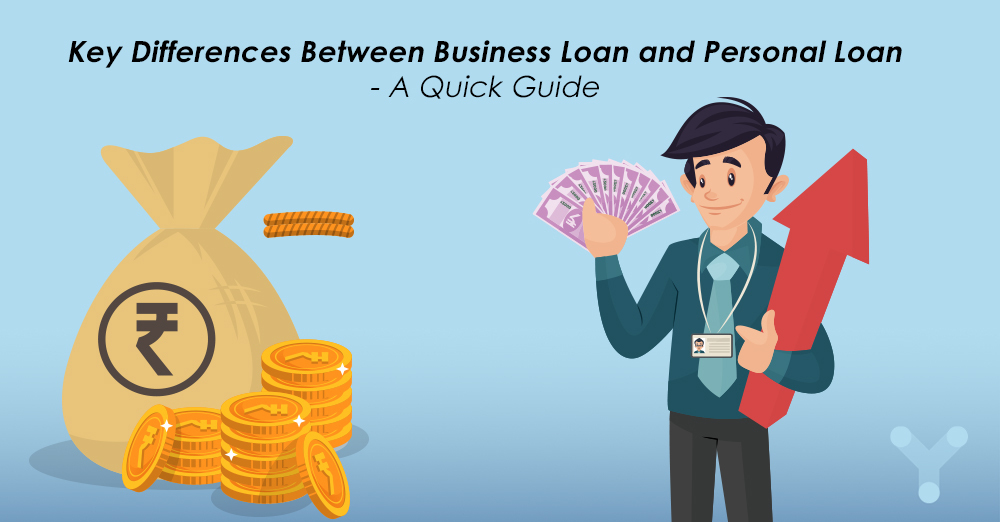
Deciding between a business loan and a personal loan ultimately depends on your specific needs and financial situation.
- https://smartlearnnetwork.com/how-to-use-business-loans-for-maximum-growth-and-profitability/
- https://smartlearnnetwork.com/how-to-qualify-for-a-business-loan-tips-for-small-businesses/
- https://smartlearnnetwork.com/the-impact-of-business-loans-on-your-companys-financial-health/
- https://smartlearnnetwork.com/understanding-personal-loans-a-comprehensive-guide/
Factors to consider when making your decision
- Purpose: If you need funds for business-related expenses, then a business loan would be more suitable. However, if you need money for personal reasons, then a personal loan may be the better option.
- Eligibility: Business loans often come with stricter eligibility requirements, such as a strong business credit score and financial statements. Personal loans may be an easier option for individuals who have a good personal credit score.
- Interest rates: Business loans generally offer lower interest rates compared to personal loans. However, keep in mind that the interest rate you receive will depend on your creditworthiness and other factors.
- Repayment terms: Business loans usually come with longer repayment terms, which can make it easier for businesses to manage their cash flow. Personal loans typically have shorter terms, meaning higher monthly payments but quicker payoff.
Key Differences Between Business Loans and Personal Loans
When exploring financing options, it’s essential to highlight the distinct differences between business loans and personal loans. Understanding these differences can help borrowers make informed decisions that align with their financial goals.
- Ownership of Debt: Business loans are tied directly to the business and its performance, which means the business is responsible for repayment. In contrast, personal loans are linked to the individual borrower, meaning any defaults can impact the borrower’s personal credit score and finances.
- Documentation Requirements: Business loans typically require more extensive documentation compared to personal loans. Lenders often request detailed business plans, financial statements, and tax returns to assess the viability and stability of the business. Personal loans are generally easier to apply for, requiring less documentation, such as proof of income and identification.
- Tax Implications: Interest on business loans can often be tax-deductible as a business expense, which can provide considerable savings. On the other hand, personal loan interest is generally not tax-deductible unless it is used for certain purposes like home improvements that enhance the value of a primary residence.
- Borrowing Limits: Business loans usually offer higher borrowing limits compared to personal loans. This is particularly beneficial for businesses that require substantial capital for equipment purchases, expansion, or operational costs.
Understanding these key differences can aid in determining the most suitable loan type based on your needs, cash flow situation, and long-term financial objectives.
Potential Risks and Drawbacks
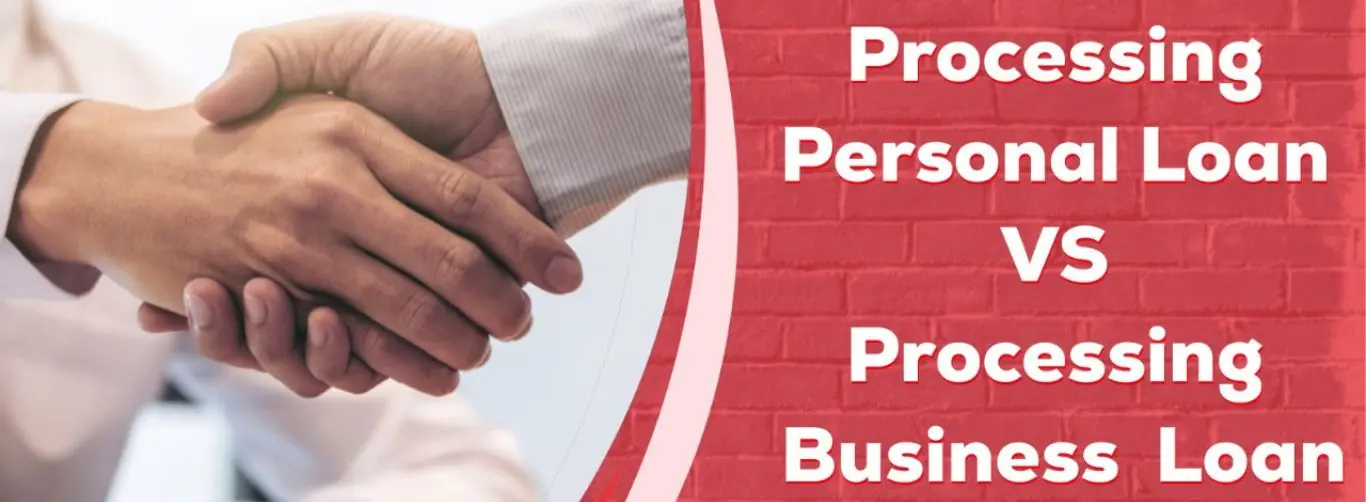
While loans can provide essential financial support, both business and personal loans come with inherent risks and drawbacks that borrowers should carefully consider.
Business Loans Risks
- Debt Burden: Taking on a business loan can lead to significant debt, which may strain cash flow, especially if the business does not generate enough revenue to cover monthly payments.
- Collateral Loss: If the loan is secured, there is a risk of losing essential assets, such as equipment or property, if the business fails to meet its repayment obligations.
- Impact on Credit Score: Late payments or defaults on a business loan can negatively impact the borrower’s business credit score, making it difficult to secure future financing.
Personal Loans Risks
- High-Interest Rates: Personal loans, particularly unsecured ones, often come with much higher interest rates compared to business loans, increasing the total cost of borrowing significantly.
- Shorter Repayment Terms: The shorter repayment schedules might lead to higher monthly payments, which can strain personal finances and create undue stress.
- Potential for Overborrowing: The ease of obtaining personal loans can tempt individuals to borrow more than they can afford to repay, leading to a cycle of debt that can be difficult to escape.
Both types of loans require careful consideration of individual circumstances, as failing to understand the potential risks can lead to long-term financial challenges. Ultimately, borrowers must carefully assess their options and choose the type of loan that best aligns with their goals and financial capabilities.
Examples of Successful Loan Utilization

Successful loan utilization can significantly impact both businesses and personal finances when approached wisely.
Business Loan Success Stories
- Tech Start-Up Expansion: A small tech start-up secured a business loan to expand its product line. By investing in research and development, they not only enhanced their offerings but also increased their customer base by 40% within a year, ultimately boosting their revenue.
- Restaurant Renovation: A family-owned restaurant obtained a business loan to renovate their establishment. This allowed them to modernize their space, leading to an increase in foot traffic and a 30% rise in sales during the following quarter, as new customers were drawn in by the improved ambience.
Personal Loan Success Stories
- Debt Consolidation: An individual consolidated multiple high-interest debts into a personal loan with a lower rate. This move simplified their payments, reduced monthly expenses, and enabled them to pay off all debts within three years, significantly improving their financial stability.
- Home Improvement: A homeowner utilised a personal loan to fund a major home renovation. By upgrading their kitchen and bathroom, their property value increased by 20%, providing them with a solid return on investment should they decide to sell in the future.
These examples demonstrate how strategic loan utilization can lead to enhanced financial outcomes and long-term success for both businesses and individuals.
Conclusion

In summary, both business loans and personal loans can provide valuable financial support for individuals or businesses. Each has its unique features, benefits, risks, and drawbacks that should be considered when making a decision. By understanding these differences and potential implications, borrowers can make informed choices to achieve their short-term and long-term financial objectives. Regardless of which type of loan you choose, it’s crucial to use the funds wisely and ensure timely repayments to maintain a healthy credit profile and avoid any potential consequences in the future. So, it is essential to analyze your requirements carefully and choose the most suitable loan option to set yourself up for financial success. So, whether you’re a business owner looking to expand your operations or an individual in need of funds for personal reasons, consider all factors before making a final decision on which type of loan is right for you. With proper research and preparation, loans can provide essential support in achieving your goals and maintaining financial stability.



